Interns Share Culture and Learning at The Jeavons Center
This year, Ecology Action hosted the largest number of interns thus far. Ten men and women, from nine countries, gathered at the three Mini-Farm sites to learn about, and gain practical experience in, the GROW BIOINTENSIVE method. This group of interns worked well together, exchanging concepts and ideas with one another. As individuals, they each brought their unique cultural and personal background to theexperience. Below are some of the comments and ideas each one shared with us. Susana Hernández – Mexico
The seriousness of water scarcity in areas where I work means vegetable production is limited to backyard subsistence gardens. Water scarcity has driven us to find cleaner solutions for food production and to install water-saving appliances in homes, such as dry toilets, bio filters, and rain-harvesting tanks. For the past year, I have managed Communidad Biointensiva, the Latin America Community website for Biointensive, http://biointensivistas.ning.com/. I am thrilled to further my learning in the area of world culture, healthy diet, water conservation, and soil with GROW BIOINTENSIVE. My immediate plan upon returning to my country is to create a GB mini-farm demonstration site that others will be able to duplicate at their home.
Tania Maria Espinoza Benavides–Nicaragua I graduated as an Environmental Quality Engineerfrom Universidad Centroamericana of Managua in 2005, and in 2010, I completed a Master in Arts for land management and environmental risks from San Carlos de Guatemala University USAC and INCAP (Institute of Nutrition for Central America and Panama). I like understanding the truth in life. I enjoy meeting new people and learning in all forms, to develop an environmental consciousness toward Planet Earth: design arts, healing, healthy music, healthy food, and walks of prayer and song. Ilearned about the GROW BIOINTENSIVE method in a 2010 workshop taught by Juan Manuel Martinez.
During the internship, I believe I gained a deeper knowledge of GB principles so I can develop cultivation techniques and produce good yields. I would also like to support University Ecological Education and local efforts to improve the economy and health of mini-farms and communities in my country. Ligia Susana Espinoza Benavides – Nicaragua
I took part in developing the Biointensive movement in Nicaragua and since 2012 have been involved in the creation of Nicaragua’s Training and Research Center in Biointensive Agriculture. Working at the Research Center led me to want a deep understanding of the GROW BIOINTENSIVE method to be able to adapt it to the economic, cultural, and environmental reality of the territory where I live. I am convinced that the GB method is the tool humanity needs to build a new approach to food production, which will allow that production to survive in the long term. I want to grow my own food in a sustainable and self-sufficient way, and I want the people around me to have the tools and knowledge to be able to do the same. I see myself on a mission to change life on this planet for the better.
I would like to create a research center and reinforce the GB network and the projects in Nicaragua and Costa Rica. I want to learn more about seeds and to preserve traditional crops. I’m going to create a system to collect data and will share the information.
Idrissa Diene – Senegal As a farmer’s son, I am interested in the GROW BIOINTENSIVE method so that I will be able to increase my annual production with healthy produce and to teach what I learn to others. During my childhood, I used to farm with my father in his fields. During those days, I perceived that farmers in the future would face difficulties. When I came across the GROW BIOINTENSIVE method, I found it appropriate to my country’s situation. Once I return to my country, I will be able to implement the techniques I’ve learned for the food security of my family and local farmers and gardeners.
I also want to translate GB booklets into French, because my community, as well as other West African communities, speaks French. It will be easier and more efficient to have this material in French. Having the books in our language will provide a strong understanding of the theory of GB.
Manjula Senanayaka – Sri Lanka
When I return to my country, I will continue my work with Sanjana and Hemantha [former EA interns] with the Department of Agriculture of the Western Province of Sri Lanka. The Sri Lanka government has recently accepted the GROW BIOINTENSIVE method as the nation’s approach to agriculture. There is a lot of work to do: teach the method, compare it to current methods, and show people how much better GROW BIOINTENSIVE can be. My country has a lot of poverty and hunger. I believe GB will help people to eat better and become healthier as a result.
My vision is to get back to the good things in agriculture: choosing to reject environmentally unsound practices in order to establish a true equilibrium, a symbiosis between agriculture and the environment. That is why, since 2006, I have been an advocate for the protection, preservation and rehabilitation of the environment of my country through an association called SAGE (Société d’Appui à la Gestion de l’Environnement) and a US-based NGO called SOIL (Sustainable Organic Integrated Livelihoods). At SOIL, we ensure that human waste is recycled and plays a dual role in nature: environmental protection (nature and human) as well as wealth in agriculture. I hope my six-month internship has expanded my determination and my field of vision to help fulfill my ultimate dream for Haiti, a Haiti that offers the world natural food without destroying the environment.
When I return to Haiti, I will work with SOIL. Our mission will be to provide healthy food sustainably where there is hunger, especially for mothers and their young children. I will have an opportunity to share what I’ve learned during my internship with those that need it most.
top | Newsletter Home | Article Index | Archive
|


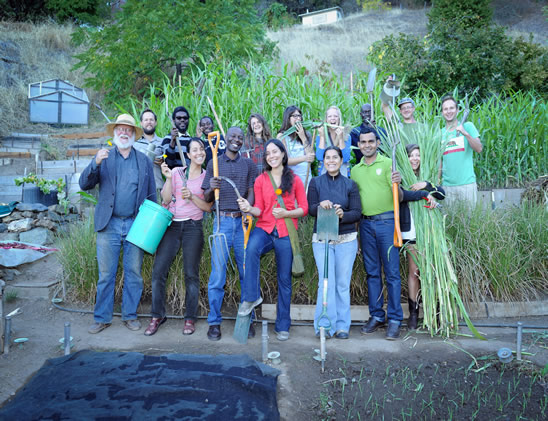
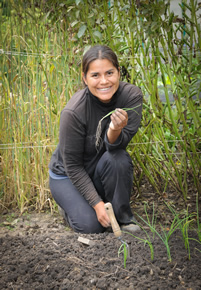
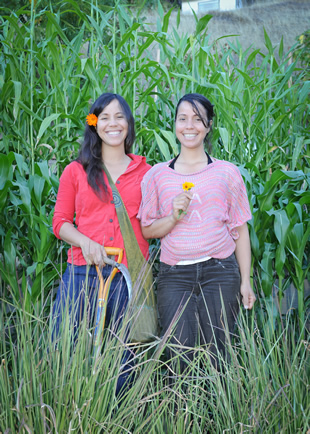
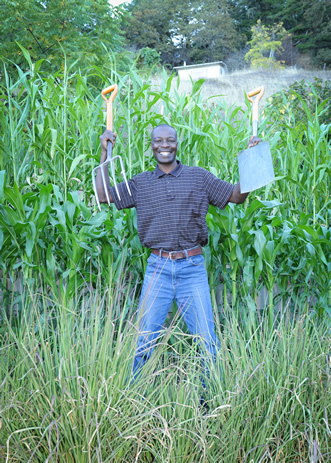 Paul Simiyu Mukhwana – Kenya
Paul Simiyu Mukhwana – Kenya 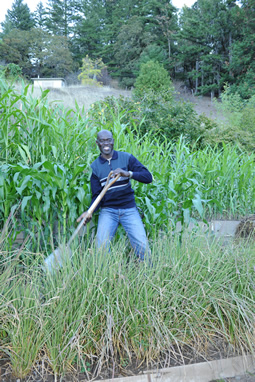
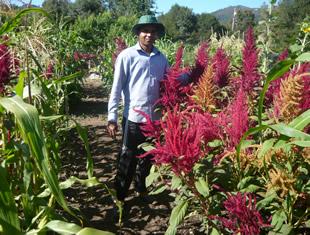 backbone of any country. I would like to include the quote from Wendell Berry, “Farmers farm for the love of farming.” They love to watch and nurture the growth of plants. They love to work outdoors; they love the weather, maybe even when it is making them miserable.
backbone of any country. I would like to include the quote from Wendell Berry, “Farmers farm for the love of farming.” They love to watch and nurture the growth of plants. They love to work outdoors; they love the weather, maybe even when it is making them miserable.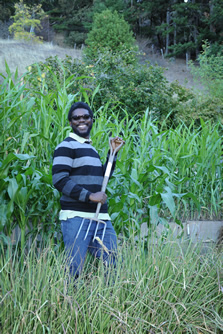 Romel Toussaint – Haiti
Romel Toussaint – Haiti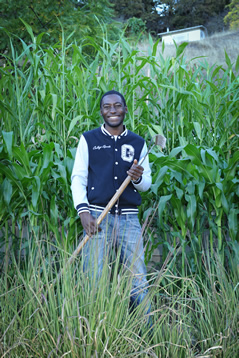 Marcel Wawa Andu – Cameroon
Marcel Wawa Andu – Cameroon